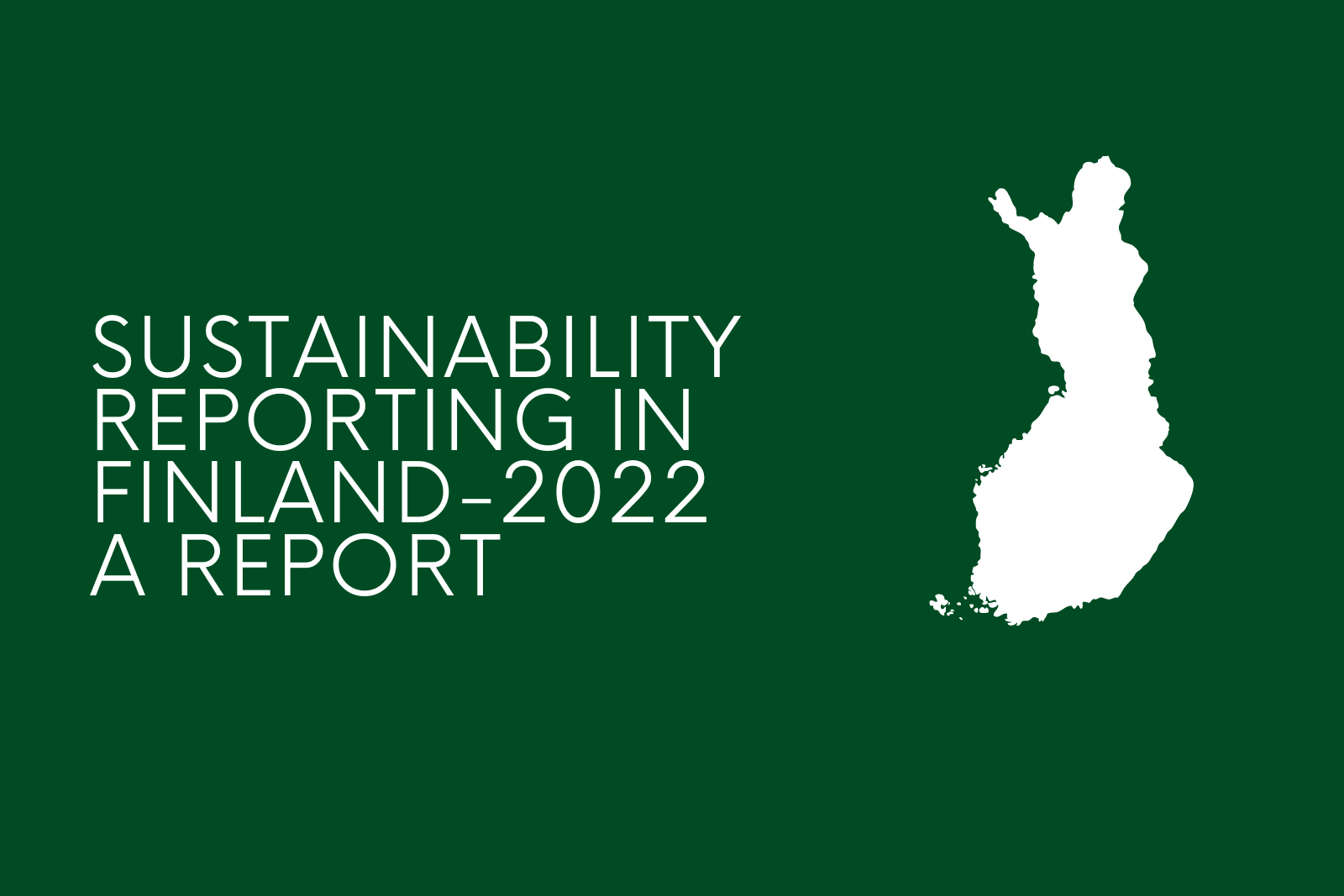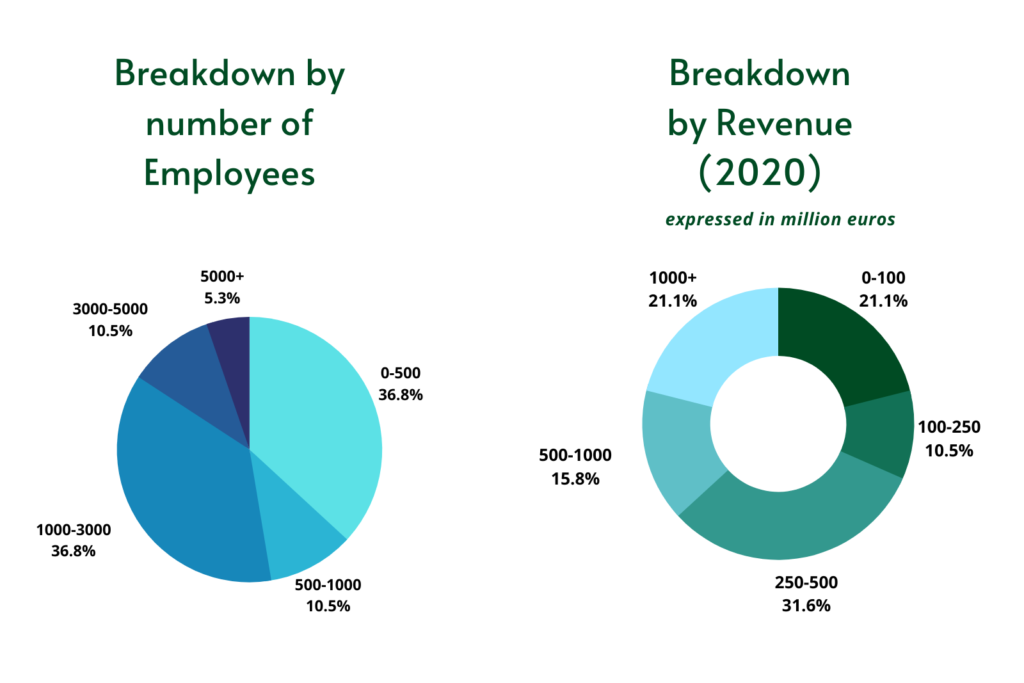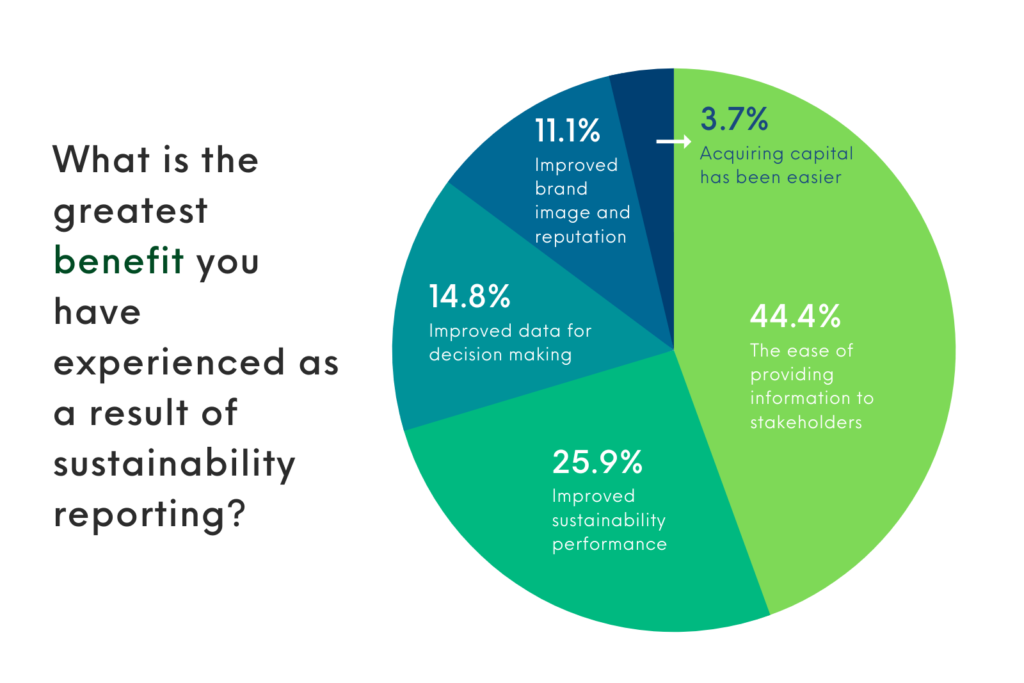A Report on Sustainability Reporting in Finland – 2022

Although sustainability reporting is not a new phenomenon in Finland, it has seen a sharp rise over the years. Today, it is no more merely practiced by large organizations for the purpose of compliance but is being adopted by companies of all sizes as a voluntary measure to display ESG impacts transparently to all stakeholders as well as a medium to showcase genuine intent to become more sustainable. And to dig deeper into the experience of such companies we conducted a survey whose findings are shared below in the form of a report.
The aim of this report is to showcase and highlight in particular the key drivers, challenges, and benefits as experienced by organizations that are practitioners of sustainability reporting.
This report is based on data collected via a survey conducted by Askel Sustainability Solutions. The survey participants were Finland-based companies that are disclosing sustainability data in the form of stand-alone sustainability reports or as integrated reporting where ESG disclosures form a part of their annual reports.

Methodology
The data represented in this report was collected via a questionnaire-based survey, conducted by Askel Sustainability Solution during the period between 05/02/22 to 05/04/22. A total of 115 organizations were contacted, out of which 27 responded in full. The medium of communication was via email. The point of contact was primarily the designated sustainability professional in the organizations. However, where such designations did not exist, the email was addressed to the communications department.
Participants
To make the results of this survey comprehensive, we chose companies from across the spectrum, from within the broad categories of Revenue, number of Employees, and Industry.

Breakdown by industry to which the participating companies belonged:
- Oil and Gas
- Food and Beverage
- Real Estate
- Media and Digital Services
- Energy
- Shipping
- Banking
- Investment and Asset Management
- Consumer Products
- Industrial Goods and Services
- Research and Development
- Plastic Manufacturing
Key Findings
The findings elaborated in the complete report (read the full report here) cover multiple facets of sustainability reporting, including answers to fixed option-based questions as well as more open-ended statements and descriptions by company representatives. To give a broad overview of the results we have shared some of the conclusions regarding some key elements of reporting below:
Drivers
The most important drivers for companies for conducting sustainability reporting among the respondents were improved brand image as well as improved transparency. Over 80% of the respondents also believed, that sustainability reporting will give them a competitive advantage. From the results, it was also possible to derive, on the basis that slightly less than one in three respondents had received inquiries related to ESG data from their clients or from their suppliers, that making these types of data requests is not yet a very common phenomenon in Finland, and the companies are prompted to take up sustainability reporting for primarily brand related reasons and competition.
Challenges
The most significant challenge that over 60% of companies face when taking up sustainability reporting is coordinating data collection between departments, in addition to which over a quarter of all reporting companies have experienced that they do not have enough workforce in-house for the purpose of creating a report. In the open format answers, the respondents also experienced, that choosing the level of disclosure in the report, the manner in which the layout will be worked on with design agencies, as well as general data availability were challenging points in the reporting process, among other challenges that were mentioned.

Benefits
The greatest benefit that over 44% of survey participants had experienced as a result of sustainability reporting was the ease of providing information to stakeholders. Also over 25% percent of the survey participants considered that the greatest benefit for them was, that they had been able to reduce their negative impacts with the help of a report. For almost 15% of the respondents, the greatest benefit was receiving improved data for decision-making. Also, ease of acquiring capital as well as improved brand image were mentioned as the most significant benefits experienced by some of the survey participants.
The Future of Sustainability Reporting
Out of the various questions posed, exploring the different aspects of sustainability reporting, the one that received a 100% unanimous response was the statement “I believe that the significance of sustainability reporting will increase in the future”.
This is not a mere coincidence that companies operating across industries, regardless of size think that sustainability reporting will be a key component going into the future. It is an assumption based on solid facts regarding the direction of sustainability regulation worldwide and within the EU as well as growing palpable pressure for transparency and action by multiple key stakeholder groups such as investors, consumers, and suppliers.
Today, organizations across the world are taking cognizance of this demand for transparency and action and through sustainability reporting are showcasing their ESG efforts alongside their impacts, to build value while staying ahead of the curve. As a practice sustainability reporting is already seeing a rapid adoption rate and all realistic estimates for the future corroborate its continued rise.
